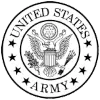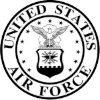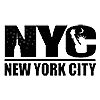





Available Lightroom Instructor-Led Courses
Available Lightroom On-Demand Courses
Virtual Live Instructor
Financing Available
Free Repeat
We offer private group training services for organizations looking to upskill their team members with a live-instructor.
Training options include:
Learn more about how Private Group Training from Business Computer Skills can help your team.
Lightroom FAQ
What is Lightroom
Adobe Lightroom is a powerful photo editing and management software designed for photographers and digital artists to enhance, organize, and share their images efficiently. It is part of Adobe's Creative Cloud suite, offering both desktop and mobile versions, ensuring flexibility and accessibility across various devices. Lightroom is renowned for its non-destructive editing capabilities, which allow users to make changes to their photos without permanently altering the original files.
Business Computer Skills now offers Adobe Lightroom training classes nationwide and online. Get the professional training you need to take your Lightroom skills to the next level. Whether you want to learn Lightroom basics, or become an expert photo editor, we have the right course for you.
Features of Adobe Lightroom
-
Photo Organization and Management
- Lightroom offers a robust library system, enabling users to organize photos into collections, albums, and folders. This helps in sorting and locating images quickly based on metadata like date, location, and camera settings.
- Users can apply keywords, ratings, and color labels to photos for easier categorization and retrieval.
- The software supports tethered shooting, allowing photographers to capture images directly into Lightroom while shooting in the studio.
-
Non-Destructive Editing
- One of Lightroom's most important features is its non-destructive editing. When users edit a photo, Lightroom saves the changes as metadata, keeping the original file intact. This allows for easy adjustments or reverts to the original image anytime.
- Edits such as exposure correction, white balance adjustment, cropping, and color grading can be applied without compromising image quality.
-
Powerful Editing Tools
- Lightroom provides a comprehensive set of editing tools suitable for beginners and advanced users. These tools include:
- Basic Adjustments: Exposure, contrast, highlights, shadows, and clarity adjustments.
- Tone Curve: Fine-tuning brightness levels across different tonal ranges.
- HSL/Color: Adjusting hues, saturation, and luminance for specific color ranges.
- Detail Panel: Tools for sharpening and reducing noise.
- Graduated and Radial Filters: Applying localized adjustments to specific areas of the image.
- Brush Tool: A customizable tool for precise adjustments.
- Additionally, Lightroom supports presets, allowing users to apply consistent edits across multiple photos quickly.
- Lightroom provides a comprehensive set of editing tools suitable for beginners and advanced users. These tools include:
-
Advanced Features and Integrations
- Lightroom offers integration with Adobe Photoshop for advanced editing needs. Users can seamlessly move between Lightroom and Photoshop to leverage more complex tools like layers and content-aware fill.
- The software supports syncing across devices, meaning edits made on a desktop version can be reflected on the Lightroom mobile app.
- It also has AI-powered features like auto-tagging based on object and scene recognition, which simplifies the organization process.
-
Cloud-Based Functionality
- Adobe Lightroom supports cloud storage, enabling users to back up and access their photos from anywhere with an internet connection. This is particularly useful for photographers who need to access or edit their photos on the go.
- Cloud storage also ensures that users have a backup of their photos, reducing the risk of data loss.
-
Export and Sharing Options
- Lightroom allows users to export photos in various formats and sizes, making it adaptable for different use cases, such as printing, web publishing, or social media.
- It includes integration with Adobe Portfolio, enabling users to create professional online portfolios directly from their Lightroom collections.
Lightroom Versions
Adobe Lightroom is available in multiple versions to cater to different user needs:
- Lightroom Classic: A desktop-oriented version that offers a more traditional file and folder-based organization approach, ideal for professional photographers who manage large libraries of photos.
- Lightroom (Cloud-Based): A newer, streamlined version focusing on cloud integration, offering a simplified interface and easy access to photos across devices.
Conclusion
Adobe Lightroom is a comprehensive and versatile tool designed to meet the needs of photographers, from amateurs to professionals. Its non-destructive editing, cloud-based capabilities, and powerful organization tools make it an essential software for managing and enhancing digital photography.
Adobe Lightroom Certifications (2024)
In 2024, Adobe offers certifications for Lightroom as part of their Adobe Certified Professional (ACP) and Adobe Certified Expert (ACE) programs. These certifications are designed for individuals who want to validate their skills and knowledge in using Adobe Lightroom, whether for personal, professional, or business purposes. Here's a detailed look at the certifications available:
1. Adobe Certified Professional (ACP) in Lightroom
- Target Audience: This certification is suitable for beginners and intermediate users of Lightroom who want to demonstrate their competency in essential photo editing, organization, and management skills.
- Skills Validated:
- Basic and intermediate photo editing techniques.
- Organizing and managing photo libraries.
- Understanding Lightroom’s non-destructive editing workflow.
- Using presets, filters, and other tools to enhance images.
- Exam Format: The certification exam consists of multiple-choice questions, drag-and-drop activities, and practical simulation tasks where candidates demonstrate their skills within a simulated Lightroom environment.
- Preparation Resources: Adobe offers official study guides, practice exams, and training courses, including hands-on projects designed to build competency in Lightroom’s core features.
2. Adobe Certified Expert (ACE) in Lightroom
- Target Audience: This certification is intended for advanced users and professionals who want to showcase their expertise in Lightroom’s more advanced capabilities and workflows.
- Skills Validated:
- Advanced photo retouching and enhancement techniques.
- Customizing and creating Lightroom presets for efficient workflow.
- Mastering color correction, sharpening, and noise reduction tools.
- Exporting optimized images for various formats and purposes (print, web, etc.).
- Integration with other Adobe Creative Cloud applications, such as Photoshop and Adobe Stock.
- Exam Format: The ACE exam is more rigorous, containing scenario-based questions that require candidates to solve problems using advanced features. The test assesses both practical and theoretical knowledge through multiple-choice and simulation tasks.
- Preparation Resources: Adobe provides in-depth training programs, including workshops, interactive courses, and expert-led webinars. Candidates are encouraged to gain hands-on experience and complete advanced projects to prepare for the exam.
3. Adobe Certified Associate (ACA)
While not a direct certification for Lightroom, Adobe also offers the ACA certification, which may include Lightroom modules as part of the broader Adobe Creative Cloud certification path. This certification focuses on foundational skills across various Adobe applications, including Photoshop, Lightroom, and Illustrator.
4. Recertification and Continuing Education
Adobe encourages certified professionals to keep their skills up to date by offering continuing education credits and recertification exams. Recertification typically involves taking a shorter exam or completing specific training modules to maintain the certification status.
These certifications are structured to suit different skill levels, from beginners to advanced professionals, and provide a clear pathway for individuals aiming to master Adobe Lightroom.
Jobs That Use Adobe Lightroom
Adobe Lightroom is widely used in various creative industries, particularly in photography and digital imaging. Professionals in these fields use Lightroom for editing, organizing, and managing photos efficiently. The software is essential for photographers, photo editors, digital marketers, and other creative professionals who require advanced photo editing tools combined with a streamlined workflow.
Photographer
- Role: Photographers capture images using digital cameras and use Adobe Lightroom for post-processing, enhancing, and organizing their work.
- Responsibilities:
- Edit and retouch photos for clarity, color correction, and overall quality.
- Organize photo collections and apply batch edits for efficiency.
- Export images in various formats for clients, websites, or print.
- Maintain a well-organized photo library and backup system.
Photo Editor
- Role: Photo editors work with photographers, publications, and companies to refine images to meet quality standards and client specifications.
- Responsibilities:
- Review, select, and edit images for projects, ensuring they align with the desired aesthetic.
- Utilize Lightroom’s tools for color grading, exposure adjustment, and cropping.
- Collaborate with photographers to maintain a cohesive visual style.
- Manage and organize large photo libraries for easy access and retrieval.
Social Media Manager / Content Creator
- Role: Social media managers and content creators develop visual content for various platforms, often using Lightroom to edit and optimize images for online presence.
- Responsibilities:
- Edit images for social media posts, ensuring they are visually appealing and consistent with branding.
- Use Lightroom presets to create a cohesive aesthetic for a brand’s social media feed.
- Organize and manage content libraries to streamline posting schedules.
- Collaborate with marketing teams to align visuals with campaign goals.
Digital Marketer
- Role: Digital marketers use Lightroom to create and optimize images for online advertising, websites, and email marketing campaigns.
- Responsibilities:
- Edit photos to fit various digital platforms, ensuring proper sizing and quality.
- Enhance images to match the marketing message and brand identity.
- Organize and categorize images for future marketing projects.
- Work closely with designers and photographers to obtain and refine visual assets.
Graphic Designer
- Role: Graphic designers incorporate Lightroom in their workflow to process and edit photographs used in designs for websites, advertisements, and print materials.
- Responsibilities:
- Edit and prepare photos for integration into graphic design projects.
- Ensure that all images meet resolution and color standards required for different media types.
- Collaborate with clients or creative teams to achieve the desired visual outcome.
- Manage photo assets and maintain an organized digital library.
E-commerce Product Photographer
- Role: Product photographers in the e-commerce industry use Lightroom to edit and optimize images for product listings.
- Responsibilities:
- Capture high-quality product images and edit them for clarity, accuracy, and visual appeal.
- Apply batch editing techniques to maintain consistency across multiple product images.
- Use Lightroom to enhance details, adjust lighting, and correct colors.
- Collaborate with e-commerce teams to ensure that images align with brand standards.
We offer live-instructor group training classes for your team.
Upskill your team from the comfort of your office or online.
Benefits of Group Training Include:
- Experienced Professional Instructor Trains Your Team
- Content Focused On Your Team's Needs
- Convenient Scheduling and Class Setup
- Significant Per/Student Cost Savings
- Online, On-Site and Blended Options Available
Denver Location FAQ
Denver is an interesting place. Here is some information to help you learn more about Denver
Ten interesting facts about Denver, CO
- Denver is known as the “Mile High City” because its elevation is exactly one mile above sea level (~0.0 miles from the address).
- The city features a diverse cultural mix with strong influences from the American West and international communities (~0.0 miles).
- Denver has a thriving craft beer scene with more than 150 breweries across the city (~0.0 miles).
- It is a major hub for arts and music, hosting numerous festivals and live events (~0.0 miles).
- Denver boasts an extensive park system and over 200 parks throughout the city (~0.0 miles).
- The city is a gateway to the Rocky Mountains and offers year-round outdoor activities (~0.0 miles).
- Denver was a major center during the gold rush era, which helped shape its rich history (~0.0 miles).
- It is recognized for its innovative urban planning and commitment to sustainability (~0.0 miles).
- Denver hosts a vibrant culinary scene that reflects its multicultural heritage (~0.0 miles).
- The city’s sports culture is robust, supporting teams in baseball, football, basketball, and hockey (~0.0 miles).
Ten Fun things to do in Denver, CO
- Visit the Denver Museum of Nature & Science (2001 Colorado Blvd, ~1.0 mile from 600 17th Street) – Discover engaging exhibits from natural history to space.
- Explore the Denver Art Museum (100 W. 14th Avenue, ~1.2 miles) – Admire an extensive collection of global art.
- Stroll through the Denver Botanic Gardens (1007 York Street, ~2.0 miles) – A serene urban garden oasis.
- Tour the historic Larimer Square (1430 Larimer Street, ~0.7 mile) – Enjoy boutique shopping and lively dining spots.
- Attend a game at Coors Field (2001 Blake Street, ~1.1 miles) – Catch a Colorado Rockies baseball match.
- Discover the Denver Zoo (2300 Steele Street, ~2.2 miles) – A family-friendly attraction with diverse wildlife.
- Walk the 16th Street Mall (1600 16th Street, ~0.6 mile) – A bustling pedestrian street lined with shops and cafes.
- Visit the History Colorado Center (700 14th Street, ~1.3 miles) – Learn about Colorado’s past through interactive exhibits.
- Experience the RiNo Art District (various locations, ~1.5 miles) – A vibrant area full of street art and creative spaces.
- Relax at Confluence Park (1800 Lawrence Street, ~1.8 miles) – A scenic spot where the South Platte River meets downtown.
Ten Restaurants near Denver, CO
- The Capital Grille (1700 Wynkoop Street, ~0.4 miles from 600 17th Street) – Fine dining specializing in steaks and seafood.
- Mercantile Dining & Provision (1701 Wynkoop Street, ~0.5 mile) – A blend of European and American cuisine in an upscale setting.
- Root Down (1600 W. 33rd Avenue, ~1.5 miles) – Farm-to-table dishes in a trendy, eco-friendly venue.
- Ophelia’s Electric Soapbox (1500 Blake Street, ~0.7 mile) – Creative American dishes paired with live music.
- Euclid Hall Bar & Kitchen (1317 Blake Street, ~0.6 mile) – Pub fare with a modern twist and craft beer selection.
- Acorn (1690 W. 13th Avenue, ~1.0 mile) – Innovative seasonal fare in a stylish, industrial space.
- El Five (1600 W. 37th Avenue, ~1.8 miles) – Mediterranean tapas with stunning city views.
- Snooze, an A.M. Eatery (1701 Blake Street, ~0.5 mile) – A popular breakfast and brunch spot with creative twists.
- Linger (2030 W. 30th Avenue, ~1.7 miles) – Eclectic small plates served in a former mortuary turned restaurant.
- Acropolis Greek Restaurant (1234 Greek Way, ~0.9 mile) – Traditional Greek cuisine with a modern presentation.
Ten Hotels near Denver, CO
- The Crawford Hotel (1701 Wynkoop Street, ~0.5 mile from 600 17th Street) – Boutique luxury with direct access to Union Station.
- Kimpton Hotel Born (1600 Osage Street, ~0.6 mile) – Stylish accommodations in the heart of downtown Denver.
- Hyatt Regency Denver at Colorado Convention Center (650 15th Street, ~0.4 mile) – Contemporary rooms with panoramic views.
- Grand Hyatt Denver (1600 Broadway, ~0.7 mile) – Upscale hotel with modern amenities and dining options.
- Embassy Suites by Hilton (1700 Wewatta Street, ~0.8 mile) – Spacious suites with complimentary breakfast.
- Hotel Indigo Denver Downtown (1701 Blake Street, ~0.5 mile) – A boutique hotel with artistic design elements.
- The Art, a hotel (3001 Lowell Boulevard, ~1.2 miles) – An artsy stay with locally-inspired decor.
- Element Denver Downtown (1300 14th Street, ~0.6 mile) – Eco-friendly extended-stay with modern touches.
- Aspen Suites (1100 16th Street, ~0.5 mile) – Comfortable suites ideal for business and leisure stays.
- Residence Inn Denver Downtown (1300 14th Street, ~0.6 mile) – Extended-stay apartments with full amenities.
Below is a list of local libraries in the area that may also provide computer training near South Denver, Colorado:
Denver Public Library
10 W 14th Avenue Parkway
Denver, CO 80204
720-865-1111
Denver Public Library
Blair-Caldwell Library
2401 Welton Street
Denver, CO
720-865-2401
Blair-Caldwell Library
Schlessman Family Branch
100 South Poplar Street
Denver, CO
720-865-0000
Schlessman Family Branch
Florence S. Shanklin Branch Library
7837 Fairfield Forest Rd.
Denver, NC
704-483-3589
Florence S. Shanklin Branch Library
Valdez-Perry
4690 Vine Street
Denver, CO
303-295-4302
Valdez-Perry
Woodbury Branch
3265 Federal Boulevard
Denver, CO
303-455-3930
Woodbury Branch
We offer live-instructor group training classes for your team.
Upskill your team from the comfort of your office or online.
Benefits of Group Training Include:
- Experienced Professional Instructor Trains Your Team
- Content Focused On Your Team's Needs
- Convenient Scheduling and Class Setup
- Significant Per/Student Cost Savings
- Online, On-Site and Blended Options Available
Learn Lightroom from a Professional Instructor and take your skills to the next level
Adobe Lightroom is a desktop publishing and typesetting application used to produce a wide variety of print documents, including books, flyers, brochures and posters.
Business Computer Skills offers a variety of Lightroom training classes in Denver, CO. Get the professional training you need to take your Lightroom skills to the next level.
Whether you want to learn Lightroom fundamentals, or become a master of photo editing, we have the right course for you.
Learn How To:
- Work in the Lightroom environment
- Importing and Managing Photos in Lightroom
- Using the Develop module
- Combining Photos
- Selecting and Masking
- Special Effects
- Organizing and Exporting Photos

Hands On
Professional Trainers
Convenient Scheduling
Small Class Sizes
Affordable Courses
Authorized Content
Testimonials
This was the class I needed.
The instructor Jeff took his time and made sure we understood each topic before moving to the next. He answered all of our questions, and I don't know about the rest of the students, but was very pleased with this experience.
I finally understand how to use Excel.
-Amanda T (Yale New Haven Hospital).
Great class!
We were able to cover a lot of information in one day without getting overwhelmed.
-Maria R (Microsoft).
Denver, CO Location Details
We hold our Lightroom instructor-led training classes for the Denver area at the following location:
Denver Training Center
South Denver, CO
This location also serves the following areas around Denver, Colorado:
Additional Lightroom lightroomTraining Locations in Colorado
Below is a list of local libraries in the area that may also provide Lightroom training near South Denver, Colorado:
10 W 14th Avenue Parkway
Denver, CO 80204
720-865-1111
Denver Public Library
Blair-Caldwell Library
2401 Welton Street
Denver, CO
720-865-2401
Blair-Caldwell Library
Schlessman Family Branch
100 South Poplar Street
Denver, CO
720-865-0000
Schlessman Family Branch
Florence S. Shanklin Branch Library
7837 Fairfield Forest Rd.
Denver, NC
704-483-3589
Florence S. Shanklin Branch Library
Valdez-Perry
4690 Vine Street
Denver, CO
303-295-4302
Valdez-Perry
Woodbury Branch
3265 Federal Boulevard
Denver, CO
303-455-3930
Woodbury Branch

